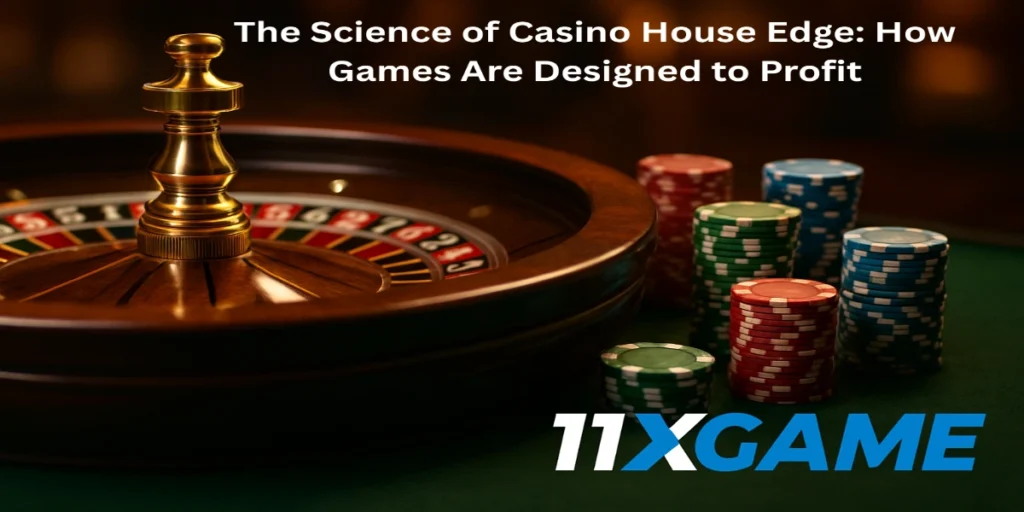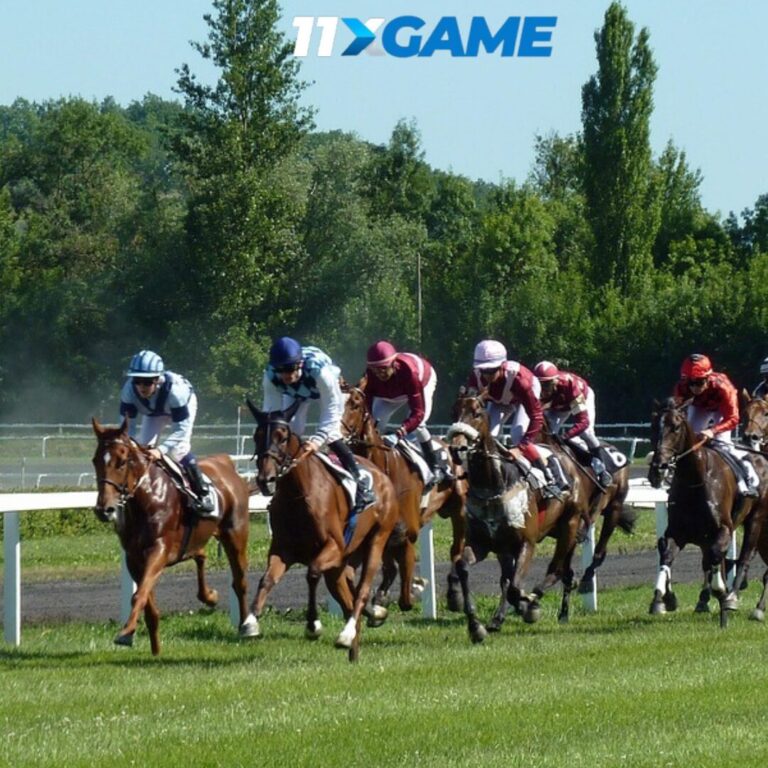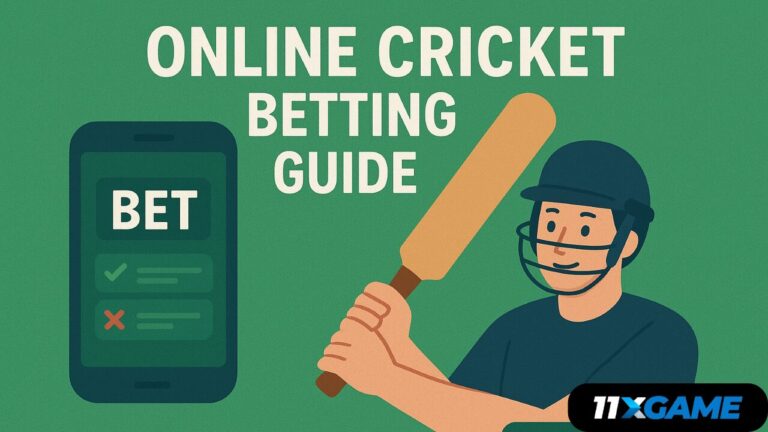🎲 The Science of Casino House Edge: How Games Are Designed to Profit
Casinos are often described as glamorous playgrounds where fortunes can be won — but behind the flashing lights and ringing slot machines lies a carefully calculated system designed to ensure the house always has an edge. The concept of house edge is one of the most important things every gambler should understand before placing a single bet. It is the invisible mathematical force that ensures casinos remain profitable over the long run.
In this guide, we will break down the science behind house edge, explain how it works across different casino games, explore the psychology that keeps players engaged, and share strategies for making smarter choices when playing.
📊 What is House Edge?
The house edge is the built-in mathematical advantage that casinos have in every game they offer. It is expressed as a percentage of each bet that the casino expects to keep as profit over the long term. For example, if a game has a house edge of 5%, it means that, on average, the casino expects to keep $5 for every $100 wagered.
This doesn’t mean players will lose exactly 5% every time they play — variance means some players win big and others lose quickly — but over millions of wagers, the casino’s theoretical edge is realized.

🧮 RTP vs House Edge
The flip side of house edge is Return to Player (RTP). RTP represents the percentage of wagered money that is paid back to players over time.
- Example: If a slot game has an RTP of 96%, it means the house edge is 4% (100 – 96 = 4%).
- Higher RTP = Lower House Edge = Better for Players.
Understanding RTP is crucial for making smart game choices. Many online casinos list RTP values, but physical casinos may not, requiring research or familiarity with standard game payouts.
🎰 House Edge by Game Type
Different casino games have widely different house edges. Knowing which ones favor players can significantly improve your odds.
1. Roulette
- European Roulette: House edge = 2.70% (single zero wheel).
- American Roulette: House edge = 5.26% (double zero wheel).
- Key Insight: Choosing European over American instantly halves the house edge.
2. Blackjack
- Base House Edge: 0.5% – 2%, depending on rules.
- Effect of Strategy: Using basic strategy can lower edge to under 0.5%.
- Mistake Impact: Poor decisions raise edge significantly.
3. Baccarat
- Banker Bet: 1.06% house edge (best bet in casino).
- Player Bet: 1.24% house edge.
- Tie Bet: 14.36% house edge (avoid this bet).
4. Craps
- Pass Line Bet: 1.41% house edge.
- Proposition Bets: Can exceed 10–15% house edge.
5. Slot Machines
- RTP Range: 85% – 98% depending on game.
- Volatility: High-volatility slots can have big payouts but long losing streaks.
🧠 Why Casinos Always Win in the Long Run
The law of large numbers ensures that while short-term variance allows for winners and jackpots, the house edge guarantees profitability over time. This is why casinos can offer huge jackpots and comp programs — the math is on their side.
For example:
- If a roulette wheel is spun 10 times, players might win more than they lose.
- If it is spun 1 million times, the casino’s expected profit will be very close to its theoretical house edge.
🧩 The Psychology Behind the House Edge
Casinos don’t rely solely on math — they use psychology to keep players engaged:
- Near Misses: Slot games are designed to show near wins, triggering dopamine release and encouraging more play.
- Variable Rewards: Players receive unpredictable payouts, which keeps them spinning or betting.
- Free Drinks and Comps: Designed to keep players comfortable and at the tables longer.
- Casino Layout: Maze-like floor designs lead players past more machines and tables, enticing more play.
🎯 Identifying Player-Friendly Games
Smart players gravitate toward games with lower house edges:
- Blackjack with favorable rules.
- European Roulette instead of American.
- Baccarat Banker bets.
- Video Poker (full-pay versions).
Avoiding high-house-edge games like keno, Big Six wheel, or tie bets in baccarat can dramatically extend your bankroll.
🔢 Practical Example: House Edge Calculation
Imagine a simple roulette game with a $10 bet on red:
- Probability of winning on European roulette: 18/37 ≈ 48.65%.
- Expected value per $10 bet: $10 × 0.4865 × 1 = $4.865 profit (when you win) minus $10 when you lose.
- Over time, you lose about $0.27 per $10 bet on average, reflecting the 2.7% house edge.
💸 Bankroll Management in Casino Play
Even when playing low-edge games, proper money management is critical:
- Set Loss Limits: Decide maximum loss before sitting down.
- Use Unit Betting: Keep bets consistent rather than chasing.
- Avoid Martingale Systems: They can wipe out bankroll quickly despite appearing safe.
- Take Breaks: Step away after big wins to lock in profit.
📊 Volatility and Variance
House edge doesn’t tell the whole story — volatility affects your short-term experience:
- Low Volatility: Frequent small wins (ideal for longer sessions).
- High Volatility: Rare big wins, but more losing streaks.
Choosing games based on your risk tolerance is essential for enjoyment and bankroll survival.
🧠 Cognitive Biases in Casino Gambling
Players often fall prey to mental traps that feed the house edge:
- Gambler’s Fallacy: Believing a win is “due” after a losing streak.
- Hot Hand Fallacy: Thinking a winning streak guarantees more wins.
- Illusion of Control: Feeling you can influence outcomes in random games.
- Sunk Cost Fallacy: Continuing to play to “recover losses.”
📈 Strategies to Reduce Losses
While you can’t eliminate house edge, you can minimize its impact:
- Choose high RTP games.
- Learn optimal strategies (blackjack basic strategy, video poker charts).
- Take advantage of bonuses and comps.
- Walk away when ahead — don’t give back winnings.
💡 Common Mistakes Casino Players Make
- Playing Without Knowing House Edge: Leads to uninformed choices.
- Chasing Losses: Increases risk of going broke.
- Ignoring RTP: Especially in online slots.
- Betting Too Large: Burns bankroll too quickly.
- Misunderstanding Variance: Leading to frustration and emotional decisions.
(This article is for informational purposes only. Gambling involves risk. Please bet responsibly. Always check local laws before playing & follow the law.)
❓ FAQ
1. What is the safest casino game to play?
Blackjack with proper strategy has one of the lowest house edges, often under 0.5%.
2. Does house edge mean I can’t win?
No — you can win in the short term. The house edge only guarantees profit for casinos over the long run.
3. Are online slots fair?
Licensed casinos use RNGs (Random Number Generators) to ensure fairness, but house edge still applies.
“For more educational resources and responsible gaming tips, visit 11xGame to stay informed and safe while enjoying your favorite sports.”






